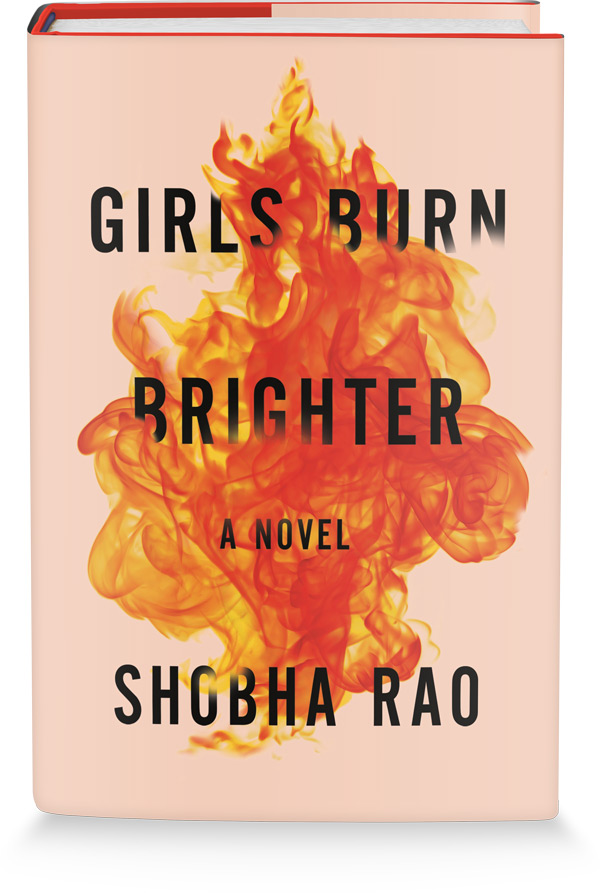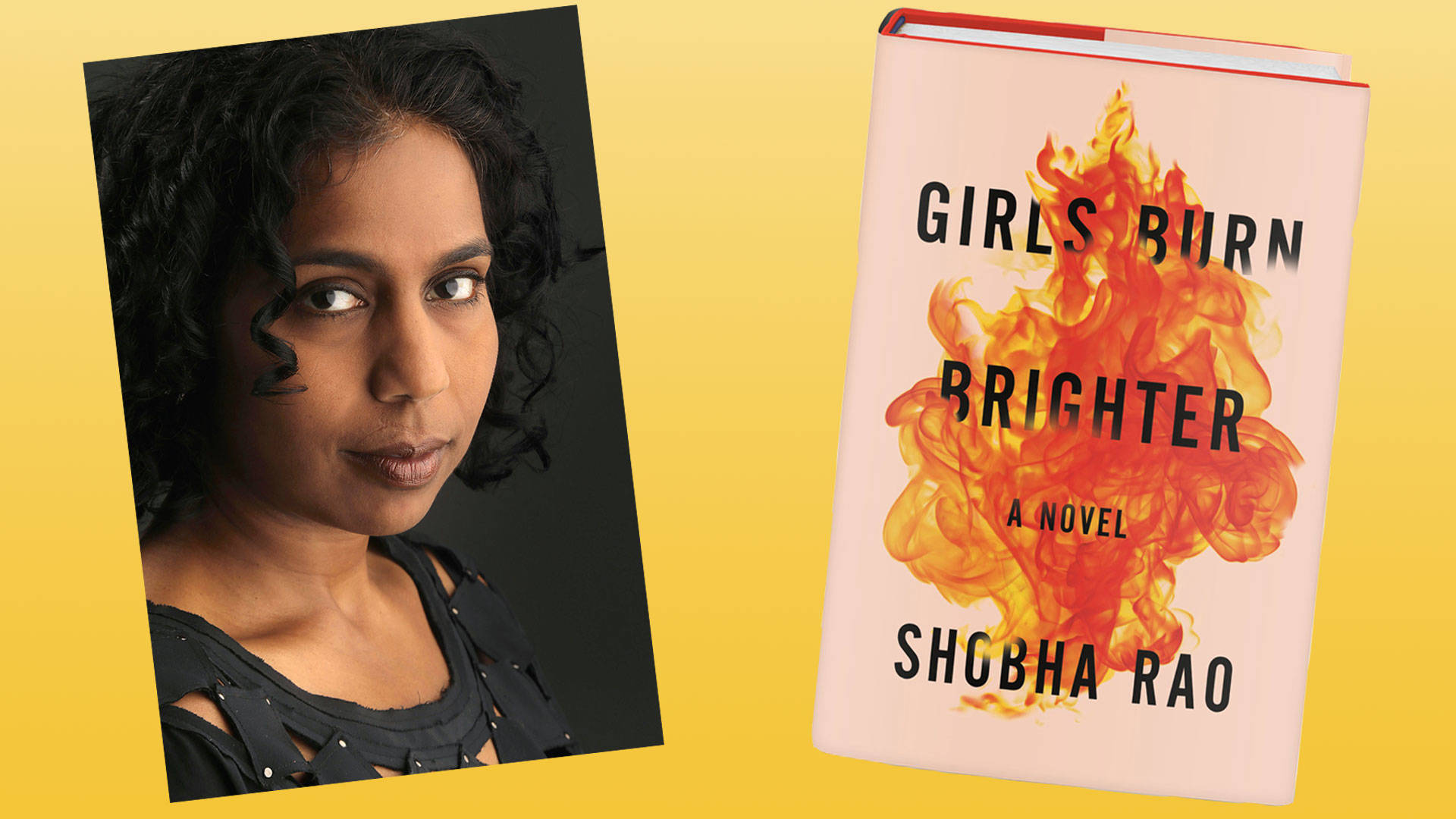There is a moment in women’s lives I think about a lot — the turning from girlhood to womanhood. This becoming is an urgent transition, but it is more damaging for some than others. Even the smallest sign of crossing into female adulthood can trigger the age-old treatment of women as if they were goods.
Girls Burn Brighter is the kind of book you open and fall into. This is the confident, assured debut from San Francisco-based Shobha Rao. Taking place in India, Girls Burn Brighter is about a fast and easy friendship between two girls, Poornima and Savitha; the terrible and wide-ranging binds of caste and misogyny; and all the ways female ambition and friendship can tear a hole in the fabric of the patriarchy.

Savitha works the loom at Poornima’s father’s workshop. The girls get together before and in between Savitha’s work to chat, to eat together, be together — they are inseparable. They dream of a place Savitha once heard described by an older woman at the market; a place where a flute plays everywhere you go.
“You know how Krishna plays the flute for his Radha, wooing her at twilight…? That is the sound of the island. Flute song. Everywhere you go there are [fruit], and there is flute song. Following you like a lover.”
“That’s what she said?”
“Yes.”
Poornima was silent. “What’s the name of the island?”
“Majuli.”
“Majuli,” Poornima said out loud, slowly, as if tasting the word on her tongue.
Their reality, however, is starkly different. There is a passage I cannot get out of my head. In it, Poornima overhears her father telling a story to a matchmaker about when she was just one year old:
It had been the day of her mundane, the offering of a baby’s hair to the gods, and afterward, they’d found a covered spot, a fisherman’s palm frond shelter, on the shores of the Krishna. According to her father, while they had been busy laying out the lunch, Poornima had squirmed away. Straight into the water, her father said… Within seconds, he continued, she was up to her neck. Her mother panicked. I jumped up and ran as fast as I could. It was only a few steps, but it seemed to take ages. Ages…
When I got near the waterline though, he said, I stopped. I know I should’ve plucked her up and given her a slap, but I couldn’t. You see, he said, she looked like she was nothing. Just a piece of debris… I was standing there, and I was thinking. I was thinking: She’s just a girl. Let her go. By then, her mother had come up from behind me, and she’d snatched her out. Poornima was crying, he said, her mother was crying, too. Maybe they both knew what I had thought… And then her father let out a little laugh. “That’s the thing with girls, isn’t it?” he said. “Whenever they stand on the edge of something, you can’t help it, you can’t. You think, Push. That’s all it would take. Just one little push.”
In Girls Burn Brighter, girls are negative goods one must get rid of, and in order to do so, a father must pay a high price for the favor of being able to unload his daughter onto someone else. Savitha and Poornima seek to survive, and they survive through each other in this beautifully written page-turner of a novel.


